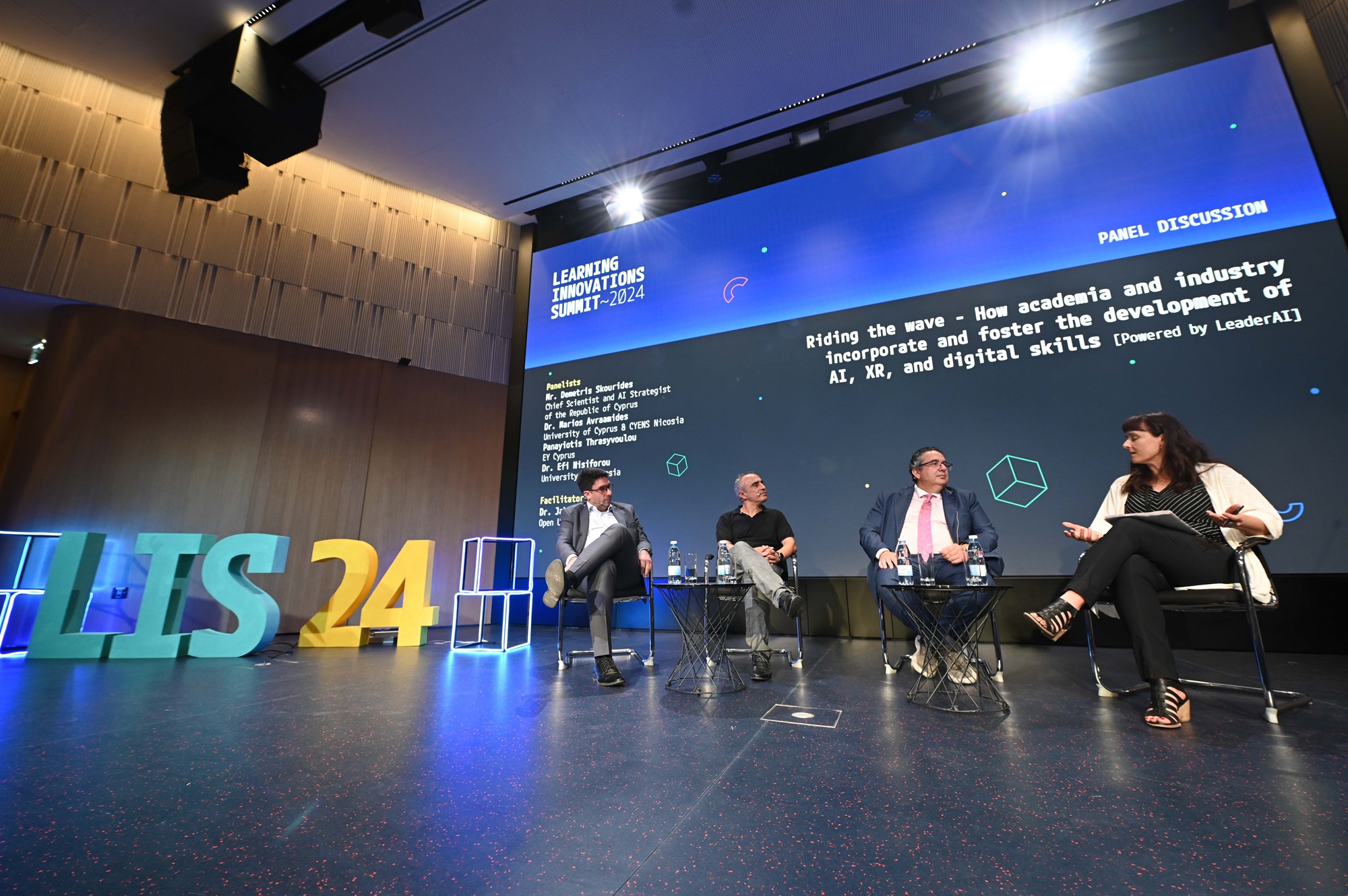Chief Scientist Demetris Skourides took part in the Learning Innovation Summit 2024 at the University of Nicosia, where he underlined the crucial role of the EU AI Act.
Commenting on this major legal framework, Skourides said that it “sets the foundation for creating trustworthy, human-centric AI solutions, with an emphasis on ethics, traceability, and transparency”.
He stressed the importance of ensuring these principles guide AI development, particularly in sensitive fields such as education. “These principles,” he insisted, “must be at the core of AI development, deployment, and use.”
Skourides made a strong case for AI’s potential to revolutionise the educational landscape.
AI, he said, “can support personalised learning, automate administrative tasks, and provide data-driven insights,” allowing teachers to focus on their most important role—guiding and inspiring students.
Intelligent tutoring systems, he added, can offer “personalised, one-on-one support,” opening new possibilities for both students and educators.
The Chief Scientist also shone a light on the advancements being made in Cyprus, where more than 50 organisations and startups are leveraging AI across various sectors, including healthcare, energy, shipping, retail, and fintech.

Skourides singled out institutions like the Cyprus Institute of Neurology and Genetics and other research centres as pioneers in this technological surge.
He was optimistic about the future, noting that “this rapid adoption of AI is likely to generate new job opportunities”, while emphasising the “need for a workforce equipped with advanced digital skills.”
“AI ‘superpowers’ for every working professional are now within reach,” he said, signalling that these advances are expected to fuel both economic growth and innovation in Cyprus.
Furthermore, ethical AI development emerged as a central theme in Skourides’ address. He reiterated Cyprus’ commitment to upholding the EU AI Act’s principles, designed to guarantee that AI systems meet the highest standards of transparency and accountability.
“This comprehensive legal framework,” he explained, “will ensure that AI systems developed in Cyprus meet the highest standards of accountability and transparency.”
When discussing the future of personalised learning, Skourides described how AI-powered adaptive learning platforms could transform education by tailoring lessons to each student’s unique strengths and weaknesses.
“This technology,” he said, “will enable educators to create learning environments where every student can reach their full potential,” illustrating how AI could be a powerful tool for empowerment within the classroom.
Later, during a panel discussion, Skourides continued to explore AI’s profound impact on education, outlining its ability to make learning more accessible and engaging.
The panel discussed how AI can provide learning opportunities around the clock, assist students with disabilities, and even incorporate gamification to keep students motivated.
Skourides was particularly enthusiastic about AI’s ability to shift the focus of education from rote memorisation to nurturing critical skills such as creative thinking, reasoning, and problem-solving.

“The future of learning,” he said, “will increasingly centre on applying knowledge in real-time, fostering agility, collaboration, and a deeper understanding of the unknown.”
Looking beyond education, Skourides called for a broader effort to harness AI’s potential across all sectors.
He emphasised how technology can enhance decision-making and predictive analytics, pointing out the importance of preparing future generations to use AI-driven knowledge to add value to the economy.
“As we prepare future generations to use their knowledge to add value to the economy, it is crucial to focus on ethics, safety, privacy, and values in education,” he said, reinforcing the need for a balanced, ethical approach to AI.
Skourides also praised the efforts of Athena Michaelidou, who was also in attendance, in modernising Cyprus’ education system, stressing the significance of AI’s integration into learning.
“I reaffirm my commitment to advancing research and developing AI solutions that empower both learners and educators, while encouraging educators and industry leaders to collaborate in shaping an educational environment where technology and AI enable individuals to thrive,” Skourides concluded.







Click here to change your cookie preferences